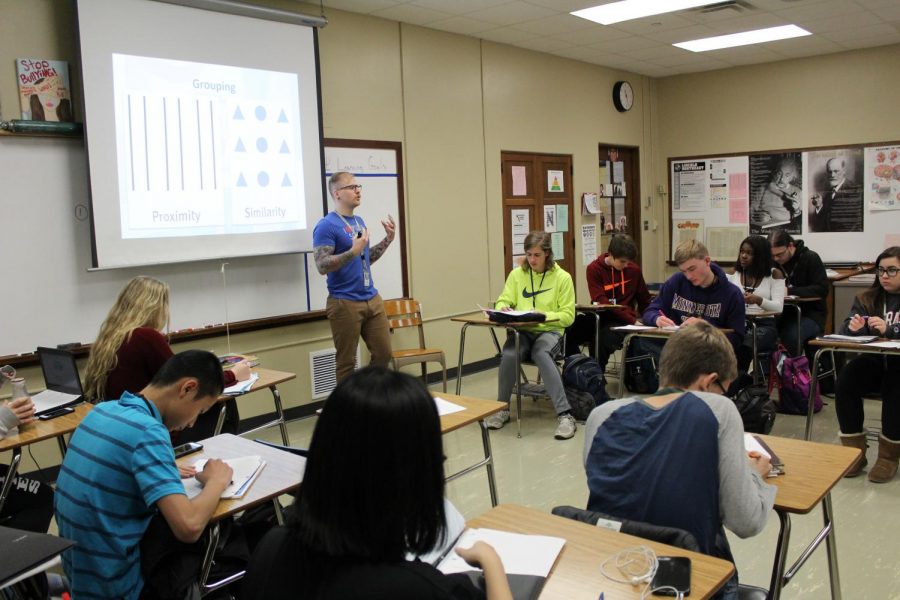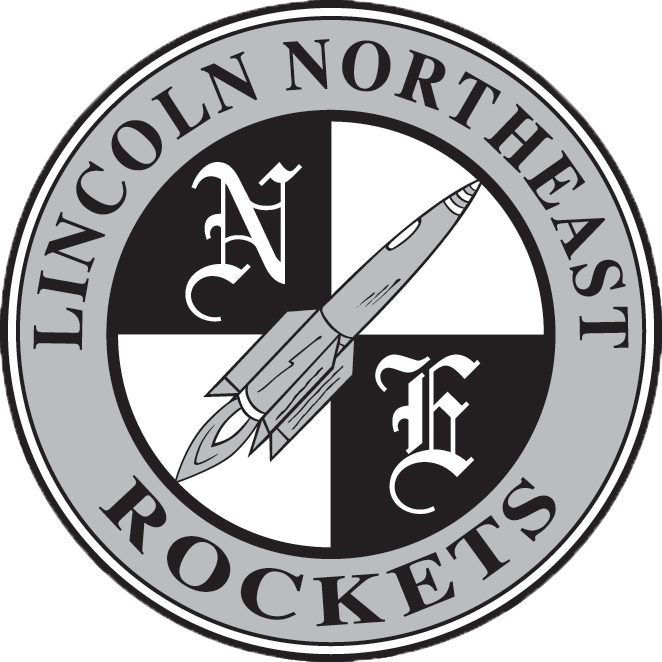What Teachers Would be if They Were Not Teachers
December 12, 2017
It may not be something that gets brought up often in the classroom, nor is it something that students ask their teachers about often, but a lot of teachers, almost all of them, had not always considered going into the field of teaching. Most teachers had an experience in their lives that led them to working in such occupation rather than their initial dream job. Various teachers at Northeast were asked what they would be if they were not teachers.
Mr. Hunt said he would be in advertising for athletic apparel such as shoes. What made him become a teacher instead was the fact that he struggled in college and what saved him was going to go meet with his teachers and professors and how they helped him out incredibly, which was something he did not learn to do in high school. Mr. Hunt said, “It made me want to be there and help kids that need it.”
Ms. Griess considered interior design, but in order to make a living, she had to move to a large city, which was not something she was interested in. So then she considered pre-law in college, but after her first year, she started to question what law she would practice. She then switched to psychology. Ms. Griess graduated from Cottey and met with a counselor at UNL who asked her whether she thought about being a teacher, but she did not think so at first. Her counselor insisted that she should consider teaching high school, and she even had the credits for it. Ms. Griess received a practicum her junior year and it worked out.
Mr. Bettendorf wanted to be a paramedic and a firefighter because it is his dream job and he grew up with it. It is a part of his family history. His dad encouraged him to get a degree because his parents thought he was too smart not to get one. Mr. Bettendorf became a teacher because he liked the relationship aspect of it. He likes jumping around and teaching about different topics. Mr. Bettendorf also said, “teaching is a good way to spread positivity.”
Mr. Brooks would have liked to become a masked vigilante or someone like Batman because “I found out I’m really good at taking kids’ phones and upholding justice and making them be on time to class.” But he became a teacher because he came from a low income family and education was his way out of that situation. Mr. Brooks said, “I really believe in what it can do for people, and I want to help people the way others helped me.”
Mr. Schlautman said, “I would either be a doctor or a financial advisor because I like to help and educate people whether it is about their health or their family and their future.” He became a teacher because of the flexibility with the schedule, and he can spend more time with his kids. He also highly enjoys working with kids and Science. Mr. Schlautman believes there are a lot of similarities between being a doctor and a teacher as they both teach others about what to do. With teaching, he is still affecting a lot of lives, and he learns from the students as much they learn from him.
Mrs. Martin would probably be a nurse or a doctor because she would still get to deal with science, while also working with and helping people. She became a teacher because of the amount of free time she would potentially have. She job shadowed a doctor, and he did not spend much time with the patient. Mrs. Martin said, “I wanted more interaction instead of just paperwork.”
Mrs. Kramer-Hansen said she would have gone to school to be a hairstylist because she would just want to try something different. Mrs. Kramer-Hansen said, “I’m an artist, and it could be another way I express myself.” She also added that in her first career, she did not like the travelling, as she was a research scientist in corn breeding. She wanted a more stable job, and teaching science allowed her to do that.
Ms. McMullen’s plan before becoming a teacher was to go to school for genetic counseling because she thought it was interesting. She became a teacher because her advisor in college told her about a teaching program that she could go to. Furthermore, she always thought about it so she thought it was a good idea. Ms. McMullen believed that, “at the time it sounded like a good path.”
Mr. Cornwell had a lot of occupations he would have been interested in doing. He believed he could have probably played professional baseball if he had different opportunities regarding the sport when coming out of high school. Mr. Cornwell thought it was highly unlikely, but he could still see himself doing it if certain events had played out differently for him in his life. He also could have seen himself in some kind of ministry position, like a youth pastor, but it was not something he aspired to be. Another was some kind of recreation director. Mr. Cornwell said, “I love to play different kinds of games. I can organize games, direct them and help kids know what to do. I can coach, help and encourage them.” He was also interested in maybe becoming a writer. He said, “I have always written, and as I grew up, I acquired the ability to write better.” He could see himself livestock farming. Mr. Cornwell stated, “I like the outdoors, and I like being around rural places.” He ended up becoming a teacher because teaching uses an aspect from each of those occupations. Certain skills like intelligence, managing a lot of different activities at once, dealing with youth and different kinds of people, and having to write a lot, for example, writing emails, tests and activities all require that. Mr. Cornwell said that with teaching, “I do that everyday anyway.”


